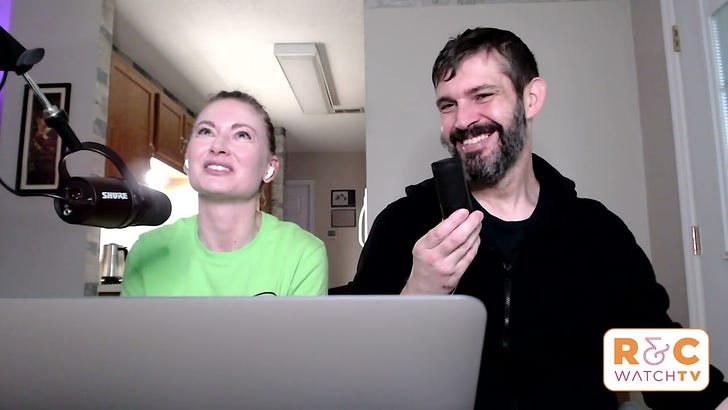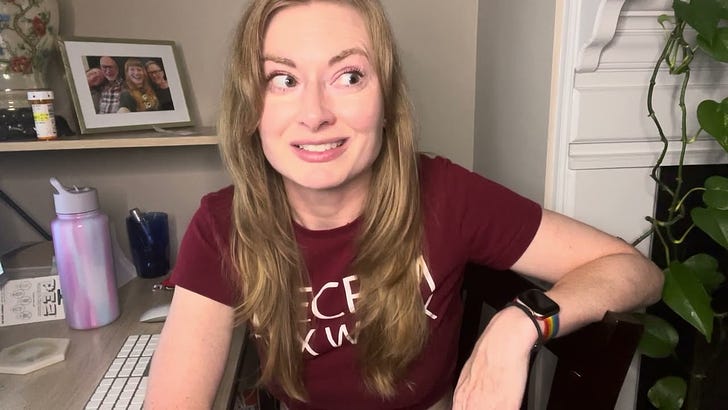Watch me read this:
Not only is this NRO article wrong on nearly every point, but it misses that while teen sex is down, the reason for it — and the problem worth worrying about — is that teen loneliness is up.
If there’s one thing I can count on in this topsy turvy world, it’s the National Review making demonstrably false claims about sex. What I didn’t predict is them switching directions.
In the August 9, 1993 issue Douglas J. Besharov admonished readers: “we should all be disturbed by the high level of sexual activity among teenagers.” A June 10, 1988 article, Sex as Apple Pie, recommends abstinence-only sex education as the ideal way to reduce teen pregnancy. In 1988’s Psychoanalysis vs. sex education, the magazine blasts “amoral instruction in sexuality,” aka comprehensive, medically accurate, age-appropriate sex education.
Then last week NRO changed its tune. They got what they wanted. Teen sex is down. Now they want it back.
That’s right. The teens aren’t having enough sex for their taste. At least I can always count on National Review writers to spend a lot of time thinking about underage sexual activity.
It’s a deeply weird article.
At one point it appears to endorse a materialist view of history, agreeing that cars had a bigger impact on teen sex than Parisian intellectuals.
But then it immediately forgets the lesson, blaming the sexual revolution for the decline in shotgun marriages that just so happened to coincide with sweeping macroeconomic changes I’ve spent many an hour describing in this newsletter.
It also claims that “young women report higher levels of sexual violence from men, a likely result of brutal, debased fantasies derived from porn.” But the linked article never claims that rates of sexual violence are rising, likely because they’re not. And the claim porn drives sexual violence is demonstrably false, since rates of sexual assault plummeted after pornography went online.
Among its few supportable claims is that US teens are delayed relative to previous decades. They’re getting jobs, drinking, having sex, and driving later than the olds were at their age.
But it’s extremely weird to paint this as a bad thing.
Teen drinking is pretty conclusively bad. Alcohol is terrible for you and especially bad for developing brains. And it’s probably not a great idea to make it even harder for kids to evaluate risk versus reward.
Teen fucking is also probably a net negative. I wasn’t having sex as a teen. I lost my PIV virginity on my wedding night at 22 years old. I didn’t even really fool around until college. And that was, with the exception of my first boyfriend at school, only with my future husband. I don’t regret not having sex in high school or college. I regret that religiously motivated shame and stigma is the reason I didn’t. And, for the millionth time, while shame and stigma might have worked on me, it doesn’t delay sexual debut for the average person.
Despite not having any first-hand experience, it doesn’t seem like teen sex is usually particularly good. Plus, the younger the teens are in terms of maturity, responsibility, life experience, the less good and more dangerous any sex they could have is likely to be.
I mean, yes, fertility rates are down but bruh what must be wrong with you to want to boost those rates with teen births?
And driving? Are you fucking kidding me? Vehicle crashes are the number-one cause of non-natural death for US citizens. Kids are not good drivers. This is a no-brainer.
The only bad part, imo, is the not working. To quote a great American, “Child labor laws are ruining this country.”
But back to teen sex, to completely switch positions on a topic and manage to still be dead wrong both times is honestly kind of impressive.
Less impressive is missing the very obvious connection here. Guess what drinking, driving, fucking, and working have in common? They’re often, if not usually, done with other people.
The real problem with today’s teens is that they’re more isolated from each other than previous generations. Doing typical teen stuff would require them to leave their bedrooms and interact with each other in meatspace, which they don’t seem to want to do.
This is the real opportunity for parents, preachers, planners, and policymakers. We need to build cities that allow kids to get together without having to drive. We need to ensure kids feel safe going outside. We need more third places that allow kids and where they don’t have to pay to be there.
And we need less precarity, so kids have the time, energy, and freedom to be kids, together.
Sex and the State is a newsletter at the intersection of policy and people. Like it? Upgrade to a paid subscription, buy a guide, follow me on Twitter, support me on Patreon, or just share this post 🙏
~~~~~
This ⬇️ is an affiliate link! Sign up today to support me!
Join the reading revolution! Get key ideas from bestselling non-fiction books, distilled by experts into bitesize text and audio. Explore our vast library of over 5,500 titles and stay up-to-date with 40 new titles added each month.
















Share this post